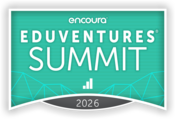Introducing Eduventures Summit Virtual Research Forum, June 16th
Will students enroll?
This is the doubt nagging at every higher education leader this year.
Making the class is nail-biting at the best of times, but following record-breaking undergraduate declines, 2021 is particularly precarious. Applications among better-known brands have skyrocketed, but languished at others. Graduate enrollment is up, but master’s programs face a stiff challenge from today’s plethora of low price, top-branded, online non-degree programs.
The silver lining: all this friction is sparking new energy—new data to better capture student wants and needs, new credentials and experiences that broaden access and deepen learning, and redoubled institutional commitment to student success. .
Following our successful online forum in November, including an intimate conversation with esteemed civil rights lawyer, Bryan Stevenson, we are curating another gathering in June—with more special guests—to tackle the big topics of the day.
Keep reading to learn more about Eduventures Summit 2021 Virtual Research Forum, June 16, 2021.
Our June Keynote
The big reveal is that our June keynote is Ken Burns, the legendary documentary filmmaker. Over a 40-year career, Ken Burns has done more than anyone to tell the American story for a mass audience, finding meaning that speaks to current events and bridges partisan divides. Rocked by once-in-a-century disruptions and a tense presidential handover, higher education leaders need to see the big picture and hold fast to timeless ideals.
Our preliminary agenda will include (with more sessions to be announced!):
- The Mental Health Crisis in Higher Education. Dr. Laurie Santos, Professor of Psychology at Yale University, and an expert on student well-being, will take us through her latest research on student mental health and the implications for recruitment and support services. Dr. Santos teaches the immensely popular Science of Well-Being course on Coursera.
- The New Admissions Practice. Kim Reid, Eduventures luminary on traditional college enrollment, will present on the “New Admissions Office,” her synthesis of how marketing and recruitment divisions are adapting to the emerging post-COVID landscape.
- Sizing up College Alternatives. Making sense of the chatter, yours truly (Richard Garrett) will present on the reality of undergraduate and graduate “college alternatives,” piecing together hard numbers on the scale and scope of everything from gap year programs to online start-ups and bootcamps to modern apprenticeships. Should colleges see these options as marginal pathways into college or college rivals?
- Strada Education and Workforce Initiatives. Our co-presenting partner, Strada EducationSM, the education policy advocacy organization whose mission is to improve lives by forging clearer and more purposeful pathways between education and employment, will update us on their latest research findings.
- Blackboard Signature Sponsorship. We are pleased to announce Blackboard as a Signature Sponsor of Eduventures Summit Virtual Research Forum. Blackboard is a leading EdTech company serving higher education, K-12, business, and government clients around the world. Blackboard connects a deep understanding of education with the power of technology to continuously push the boundaries of learning.
Don’t Just Blame the Pandemic
This spring, the traditional college experience remains an unappealing mix of in-person precaution and remote making-do. Institutions have worked hard to make the best of a bad situation, but few traditional-aged students are clamoring for anything other than a return to campus. Schools can project but cannot promise what the fall 2021 student experience will ultimately amount to, convincing some applicants to hang back. College leaders worry that students will be lured away by gap year programs, online giants, and college alternatives, or simply sit out for a year.
The vast majority of schools that once required test scores remain test optional this fall, complicating scholarship awards and remedial placement. Graduate school tests are in long-term decline. The campus visit, another guide to genuine student interest, has been severely constrained during the pandemic. So-called stealth applicants, who contact the institution directly rather than through conventional channels, are up this year.
Student learning has been undermined by COVID-19: until recently, about half of America’s K-12 students were still either in school part-time or remote. This makes high school GPAs harder than usual for college admissions officers to calibrate, further dampening signal amid the noise. Rather than the expected counter-cyclical boost, the pandemic appears to have only exacerbated a 10-year fall in adult undergraduate enrollment.
Of course, college has long been a “black box” for many prospective students struggling to pick the right school from a confusing mix of data, marketing, and word-of-mouth, and maybe a fleeting campus visit. Let’s face it: high school seniors apply to more schools because discerning true fit is difficult, attested by stubbornly high dropout rates at many schools. But this year, more than ever before, prospective students are also a “black box” for colleges.
The Bottom Line
Yes, times are tough, but the higher education opportunity is enormous. The pandemic has pushed colleges to re-think legacy assumptions and arrangements: how to judge student fit, ways to blend campus and online, programs that marry knowledge and skills, and partnerships that foster new capital, ideas and models. What seemed impossible is suddenly taking shape. Higher education has always handled whatever history threw at it and emerged stronger. This time will be no different.
The bottom line is that higher education has never been more important for economic momentum and social cohesion in America, and pushing beyond pre-pandemic norms is now within our grasp. There has never been a more tumultuous and exciting time to be part of American higher education. In the coming years, untold dimensions of student demand will come into the light (further illuminating who, what, and why), and students will gravitate toward compelling new renderings of college experience and value. Much will look different, but the fundamentals will endure. The black box is starting to brighten.
It’s no secret that change breeds new ideas. That’s the power of Eduventures Summit.
Never Miss Your Wake-Up Call
Learn more about our team of expert research analysts here.
Eduventures Chief Research Officer at ACT | NRCCUA
Contact

